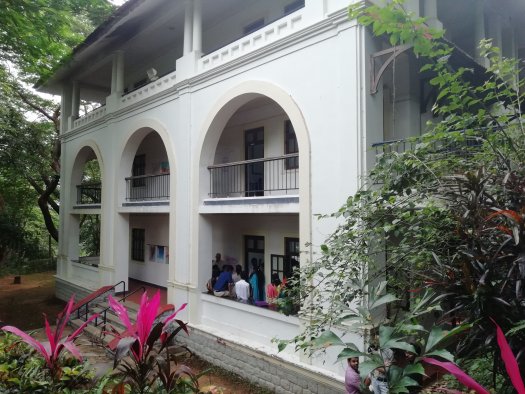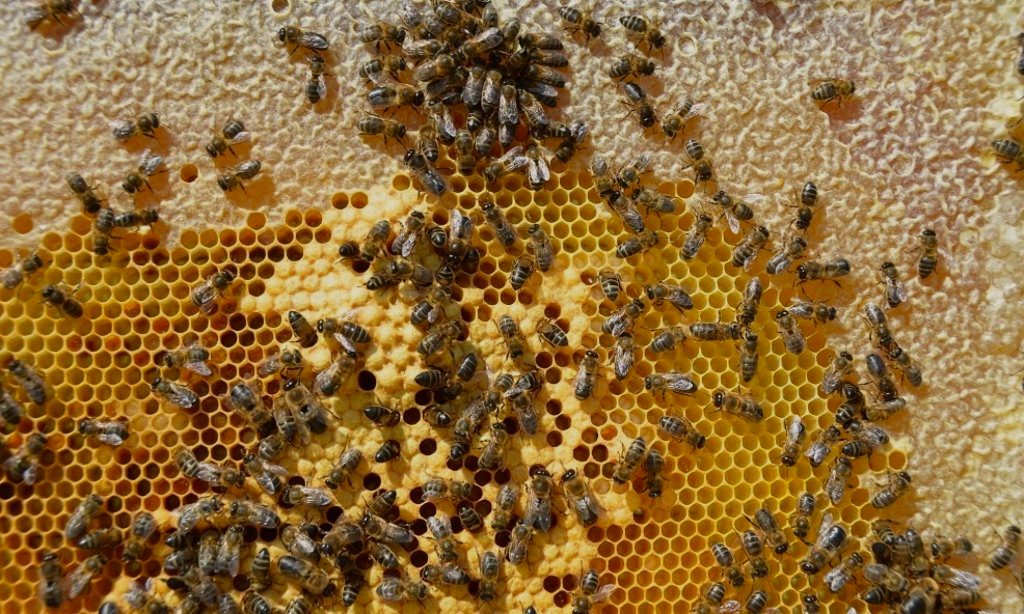J’ai récemment eu l’honneur d’être invité à participer au sixième colloque international sur les relations enseignants-étudiants, organisé par la Sri Adwayananda Public School, à Malakkara, Kerala.
Dans ce cadre, il m’a été demandé d’intervenir en ouverture du colloque, avant une présentation de la Permaéconomie aux étudiants et l’animation d’un Hackathon, suivant la méthode du Pro-action Café, sur l’évolution de l’école de de son réseau de partenaires nationaux et internationaux.
Voici le texte de mon intervention en ouverture (en anglais) :
Principal and general convener,
Members of the Alliance Educational Foundation,
Honored guests,
Dear teachers,
Dear students and alumni,
Ladies and gentlemen,
Dear colleagues,
It is a great honor to be with you today, here, for the opening of this colloquium. It is also a great emotion for me to be invited to give this address on education, because I deeply think that education is the best, the most relevant and the most efficient investment we can make to prepare our future.
Teaching can sometimes be done through stories, which can be used as metaphors and are easily remembered. But teaching is also the best way to write the next chapters of our common story. And the least I can say about our story is that it is… unfinished.
So let’s look back a little to find out where we are today before considering how we could write the next chapters.
This is our story. We are, collectively, the main character of this story. We are, and when I say “we”, I mean we as a specie, Homo sapiens, pretty “bizarre”. Yes, indeed, Homo sapiens is a very strange specie.
For example, we feel anxious about the future. This is quite a paradox as we are, as far as I know, the only specie on this planet to have the ability to consciously plan and act for its future, even on a long-term basis.
We spent a lot of time and energy to compete against each other’s, while so many species, like trees, fungi and even bacteria’s have chosen to cooperate, which appears to be a pretty good strategy, relevant in many different contexts.
We widely put an emphasis on individual intelligence, soon to be broaden (or maybe not) by artificial intelligence. But we dramatically lack the kind of collective intelligence some other living organisms, like insects, have experienced with great evolutionary successes. We, individual geniuses, have developed dumb communities. Bees and ants do it exactly the other way round. That sounds funny, and that would be, if we weren’t facing dramatical issues like the one we must deal with today.
You know the story, so I’ll make it short: global warming, biodiversity loss, soil erosion, pollutions, ocean’s acidification, among other issues, are challenging our ability not only to build a sustainable future, but also a desirable one. A future in which it would be possible for everyone, on this Earth, to express their rights for “Life, liberty and the pursuit of happiness”, as stated in the famous sentence of the United States declaration of independence.
Historically, we, humans, have developed a strong fear about nature. We have tried, not limiting our efforts and indeed with some success, to build walls between us and nature. We have done this since the invention of agriculture, during the epoch called Neolithic, and continued with the development and improvement of technologies. French philosopher René Descartes nailed it, in his “Discours de la méthode”, published in 1637, when he stated that we should act “as if we were masters and owners of nature”.
And, of course, our economy reflects these conceptions. We have developed a “one way” economy, a linear economy which extract, transforms, use and waste. We have developed a dispersive economy, with negative externalities. We have developed a competitive economy, used as a tool of power and domination. Of course, this could have been done otherwise. And, luckily, this can still be changed. Economy is a tool, not a rule.
But in the meantime, this is where we are. “Seeds, steam and steel”: sounds like a summary of human modernity. “Heat, treat and beat”, would make a good summary of human industry.
As the astrophysicist Hubert Reeves pointed out: “We are on war against nature. But if we win that war, we are lost”.
What we have forgotten, is that we depend on nature. “Every breath you take, every move you make” (no, I will not sing it like Sting), depends on the ability of plants to transform the energy from the sun into some sugars and proteins you can digest, and oxygen you can breathe.
But plants depend on insects for pollination, and on earth worms for the formation of the soil. Insects and worms depends on bacteria’s, they nest in their digesting system, to extracts the nutrients they need. And so on. Every single organism on this earth depends on myriads of other organisms. And we make no exception. We nest, in our body, 1.000 more microbial cells than human cells. This is about 2.5 kg in average. We could not breathe, digest, preserve our integrity and protect ourselves from pathogens without these tiny helpers. When we consider this, and think about all the implications, it can lead to a radical change in the way we consider ourselves in the world. If you have so far considered yourself as an individual, maybe a part of a community or an ecosystem, think about it. You are not an individual. You are an ecosystem. Whenever you want it or not, you are not alone, and will never be.
This is what we are: a sum of complex systems of interactions and interdependencies, ourselves being in interaction with other complex systems of interactions and independencies.
WOW! Put this way, the world seems much more complex than we ever thought it was. And, yes, indeed it is. And this is great news.
This is great news because, in complex systems, magic happens. Magic, here, in more scientifically sound terms, is called emergence. This property of complex systems means, basically, that a system is more than the sum of its parts. Great news: you can ask for more! This opens the gates for future innovations in so many fields: agriculture, industry, education, local governance, etc.
Nature tells us that we all interact and cooperate in complex systems of interdependencies. That all living organisms are playing a role in dynamic coevolution processes, building resilience and adapting to changes.
There is a great lesson to take in consideration here.
Why not, taking this new vision in consideration, invent an agriculture that will not fight against nature, but play with it? An agriculture that will not “degrade” our environment, but “agrade” it, improving the soils, cleaning the water, storing carbon and creating spaces and opportunities for biodiversity. This agriculture is already here. It is called “permaculture”.
Why not invent an economy that will agrade the environment, by not only offsetting its negative externalities but also by providing positive externalities? An economy inspired by nature, compatible with life principles, relying on cooperation and collective intelligence, preserving the common goods and giving everyone his share? This economy is on its way. I’ve called it “permaeconomy”.
Don’t stop your imagination here. Why not imagine cities, local communities and education systems based on the same principles?
Don’t misunderstand me: I’m not talking about a nostalgia for a “golden age” from the past. This is the opposite: this is a radically new way to consider innovation. Not only technical innovation, even if this one has also a role to play of course, but also “immaterial innovation”: innovation in processes, in organizations, in cooperation, in governance, in management.
You may think that I’m an utopist, but I’m not. Everything I’m talking about has already been experienced, with success, somewhere in the world. Time may sound hard through the lenses of the mass medias, but there is a silent revolution on its way. The next move we need is a change of scale.
And our role, for us teachers, is to prepare our students for this world. We must build knowledge, boost confidence, open minds and imaginations, provide the right lenses to understand complexity, teach to cooperate.
It sounds like a tough job. But can you think about a more stimulating challenge?
Thank you very much.






